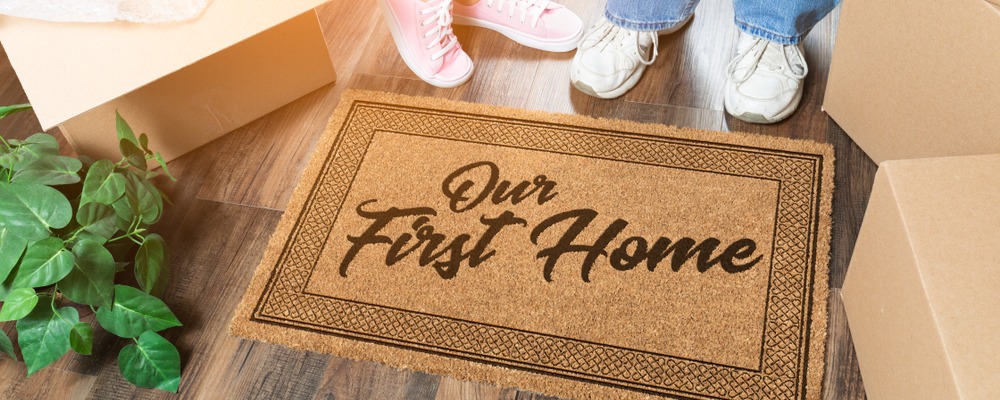Legal and financial considerations when buying a house
Whether you’re just getting on the property ladder or considering a new family home, buying a house involves legal and financial responsibilities.
This guide helps you navigate the conveyancing process, from instructing a solicitor to securing a mortgage and exchanging contracts. We’ll also touch on some of the costs you may need to cover.
Legal considerations
Some of the legal considerations when buying a house include:
- Instructing a conveyancing solicitor
- Conducting local searches
- Arranging a survey
- Signing and exchanging contracts
1. Instructing a conveyancing solicitor
Conveyancing happens after your offer on a property gets accepted. Your solicitor deals with the legal paperwork, from drafting contracts and liaising with the seller’s solicitor to transferring the property ownership to you.
You don’t need a conveyancing solicitor, but they can speed up the home buying process.
2. Conducting local searches
Your solicitor will conduct local searches to check for plans or potential issues. These include:
- Local authority plans
- Environmental searches
- Water and drainage connections
- Mining and planning searches
- Chancel repair liability
They will assess the local area and report their findings to you and your mortgage lender.
3. Arranging a survey
Though not legally required, a survey can help you spot significant issues in your new home and forecast repair costs. It’s essential if the house you’re buying is a listed building, is old or in poor condition, or has a thatched roof.
You can choose between three types of surveys:
- Condition Survey (Level 1). The Level 1 survey provides a general overview of the property’s condition.
- Homebuyer Survey (Level 2). The Level 2 survey is recommended for properties in reasonable condition or under 50 years old. It includes the surveyor’s advice on repairs and maintenance.
- Building Survey (Level 3). The Building Survey provides an in-depth inspection.
4. Signing and exchanging contracts
Once your solicitor has received the relevant paperwork from your seller’s solicitor and is happy with the results of the local searches, it’s time to sign and exchange contracts. From this moment, you’re legally bound to complete the purchase before the completion date.
Completion and after completion
Completion day means the property is legally yours. Your solicitor will send the outstanding payments to the seller’s solicitor and receive the transfer deed for you to sign.
In the final stage of the conveyancing process, your solicitor will arrange for Stamp Duty (if applicable) and register you as the new owner with the HM Land Registry.
Financial considerations
You’ll also need to cover some expenses when buying a house, including:
- Stamp Duty
- Mortgage fees
- Estate agent fees
- Solicitor’s fees
- Lender’s valuation fee
1. Stamp Duty
Stamp Duty is a tax paid to the government when buying a house, flat or land in England that exceeds £250,000 (£450,000 for first-time buyers). The amount you pay depends on your circumstances, property price and location.
This tax applies to freehold and leasehold properties, whether bought outright or with a mortgage.
Learn more about Stamp Duty in our handy guide.
2. Mortgage fees
You must cover some fees if you take out a mortgage to buy your new home. These may include:
- Booking fee: This upfront payment confirms you’ve secured your mortgage. It typically costs between £100 and £200.
- Arrangement fee: Your bank or building society will charge an arrangement fee for setting up your mortgage. It usually costs between £1,000 and £2,000.
3. Estate agent fees
The seller pays the estate agent fees, usually between 1% and 3% of the sale price (plus VAT at 20%). Online estate agents typically charge a flat fee.
4. Solicitor’s fees
If you hire a solicitor, ensure you gather quotes upfront. They usually charge a flat fee (a percentage of the sale price), but some may charge hourly. Solicitors usually cost between £500 and £1,500 (including 20% VAT).
Solicitors will also conduct local searches to check for plans and issues. These typically cost between £200 and £300.
5. Lender’s valuation fee
When your offer is accepted, your lender will arrange a survey of your home to ensure it’s worth your price. The cost of this can range from £150 to £1,500.
If you’re just getting started with the home buying process, our step-by-step guide can help. Browse our brand-new homes and apartments around London – energy-efficient and sustainable – and take advantage of unique offers.
Visit or call our Sales Advisers today.




